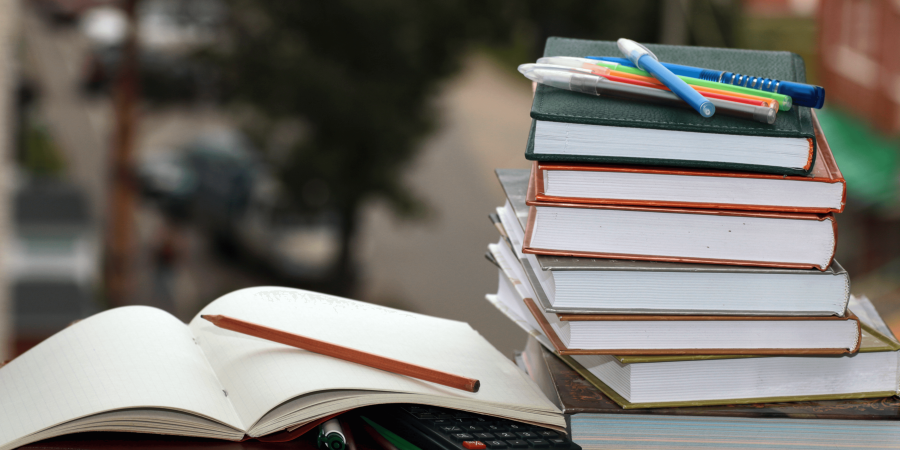
Textbooks or no textbooks? That is the Question
Author: Florence Thomas, Primary School Curriculum & Well-Being Leader
How frustrating it must be to come home ready to help your child with schoolwork and all you see are photocopied texts and worksheet packets that aren’t connected to a source. You just wish your child had a textbook to guide you as it’s hard to make sense of the work at home – let alone try to help your child complete his work using the method used at school. Does this sound familiar to you?
This is why we would like to take this opportunity to shed some light on the use of textbooks in Lighthouse Primary School.
First of all, it is important to understand that Lighthouse is not against textbooks. In fact, Lighthouse Secondary School relies on textbooks to make sure they cover the curriculum for the end-of-year exams. In Primary, however, the curriculum allows for a more flexible, overarching framework that supports diverse learning paths. Although there are a variety of books which can be used to supplement the British Curriculum, like Oxford Reading Owls, there are no prescribed textbooks as compared to the Cambridge or Mauritian Primary Curriculum.
This freedom is in line with our philosophy at Lighthouse which states that “Insofar as possible, students should be in contact with creative and engaging books as well as primary sources, either in place of or to enhance a standard textbook”. The primary reason for not relying on prescribed textbooks is to avoid cultural and informational biases. These biases can hinder the creation of a relevant, future-focused educational journey that promotes faster growth and allows for broader differentiation among students. By embracing this approach, we can better equip learners for the complexities of tomorrow, ensuring their growth is both dynamic and inclusive.
At Lighthouse, we believe in promoting hands-on, experiential learning. We want students to develop critical thinking and inquiry skills by engaging with creative texts, multimedia resources, and primary sources. Instead of relying on a standard textbook, we encourage deeper engagement through interactive activities and project-based learning. For example, instead of reading about electricity from a textbook, students might build a circuit, allowing them to apply what they’ve learned in a tangible way. This approach encourages students to think critically and synthesise information from the world around them.
One major drawback of textbooks is their tendency to promote passive learning. Textbooks often provide pre-synthesized information, which can limit students’ engagement and creativity. They also tend to follow a one-size-fits-all approach, which doesn’t cater to students’ diverse needs and learning styles. In a primary classroom where abilities and learning styles vary, relying solely on textbooks may not provide the personalized or differentiated learning that many students need to succeed.
The International Primary Curriculum (IPC) helps us structure learning around thematic units, integrating subjects for a more engaging, child-centred approach. Without a prescribed textbook, we can select relevant, up-to-date materials that support learning. In a fast-changing world, textbooks can quickly become outdated, lacking current knowledge of global developments.
This does not mean, however, that we are never going to use textbooks. Textbooks have also huge benefits in providing structure and consistency across different classrooms, providing a comprehensive coverage of material in a sequenced manner -allowing students to gradually build on previous knowledge and avoid gaps in learning – and can be a great support for the teacher who does not have to spend hours creating appropriate material for the students. Studies from the Organization for Economic Cooperation and Development (OECD) have indicated that having a standardized curriculum supported by textbooks helps schools ensure accountability and improve student results. Furthermore, research shows that paper text is more effective for learning than screens.
As we work on refining our curriculum from Reception to Grade 13, our commitment remains the same: to provide the best possible education that’s meaningful, challenging, and tailored to each child’s unique needs. We are always evolving and open to finding the right resources which will add value to our learning community.
While we understand the frustration of not always being up to date about your child’s learning, rest assured that our teachers work hard daily to provide the best materials for your child’s needs. This is why we’ve decided, since last term, to send workbooks home more regularly. This will allow you to closely follow your child’s learning and understand the methods we use at school. Workbooks will be sent home the same day you receive a CAR Report, and French copybooks will be sent home a week before or after. We ask that you review these workbooks thoroughly, sign them, and return them to school promptly.
We appreciate your trust and partnership as we continue to grow together!
Reference List
Cambridge Assessment (2023) Why do students still need textbooks? Available at: https://www.cambridgeassessment.org.uk/insights/why-do-students-still-need-textbooks/
International Society for Technology in Education (ISTE) (2016) ISTE standards for students: 2016 research validity report. Available at: https://cdn.iste.org/www-root/Libraries/Documents%20%26%20Files/Standards-Resources/ISTE%20Standards_Students-2016_Research-Validity%20Report_final.pdf
Lighthouse Primary and Secondary School (2024) Parent and Student Handbook. Unpublished internal document.
Lenon, B. (2021) Why are English schools not using textbooks? Available at: https://educationblog.buckingham.ac.uk/2021/05/16/why-are-english-schools-not-using-textbooks-by-professor-barnaby-lenon/
OECD (2018) Development Co-operation Report 2018: Joining Forces to Leave No One Behind. OECD Publishing, Paris. Available at: https://doi.org/10.1787/dcr-2018-en
Schmid, R. (2018) The role of textbooks in education: A comprehensive review. Available at: https://pdf.sciencedirectassets.com/273542/1-s2.0-S1747938X18X00037/1-s2.0-S1747938X18300101/main.pdf Terada, Y. (2020) Should textbooks still play a role in schools? Available at: https://www.edutopia.org/article/should-textbooks-still-play-a-role-in-schools